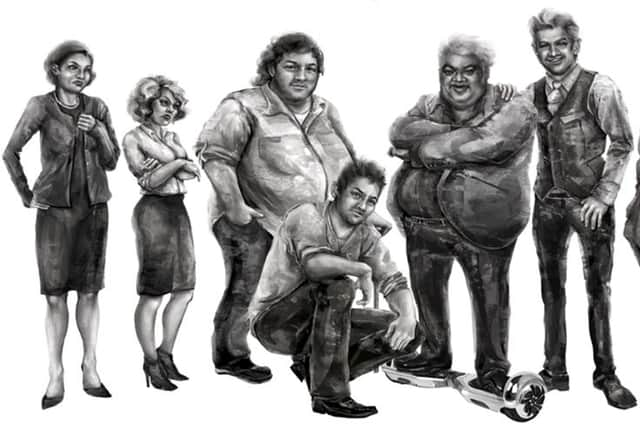How a fictional pen pal has helped Scottish men to lose weight


The aim of the ‘Game of Stones’ study was to explore how digital storytelling could aid in managing obesity.
The intervention was designed and conducted by Dr. Mark Grindle, a film and TV writer, and producer of programmes including Scottish soap opera Take the High Road. Dr Grindle has a keen interest in game design and currently works as a digital health researcher at the University of Highlands and Islands.
Advertisement
Hide AdAdvertisement
Hide AdDr. Grindle created a fictional story centring around the character of Slim who weighs 273lb and is clinically obese. His GP tells him he is on the borderline of developing type II diabetes. Slim is out of work in construction, and his self-esteem has taken a huge hit.
“Slim's story was not so much about him changing his behaviour, but how he copes in his community. He had problems with his wife Vilma who missed having fun together and his friend Budge for whom obesity was the new black”
Slim would send-out regular text messages updating participants on how he was doing.
What surprised Dr. Grindle was that participants texted Slim back with updates on their own progress and various new weight loss techniques that they were trying out.
“Even I got close to texting Slim back on a night when I was stuck after my plans had fallen through. My phone buzzed and it was Slim telling me his wife had just left him. I almost wrote back about how sorry I was to hear that. But then I realised that I had written that story and knew this was going to happen. There is something very powerful about the intimacy you build, even if the one on the other side isn't real,” said Dr. Grindle.
With Slim's help, participants lost on average three per cent of their body weight.
“Men, more so than women, struggle to reach out, they tend to be more stubborn. This is very possibly connected to our notion of masculinity where men are expected to be tough and manage on their own. In addition to that, obesity is still stigmatized.”